|
|
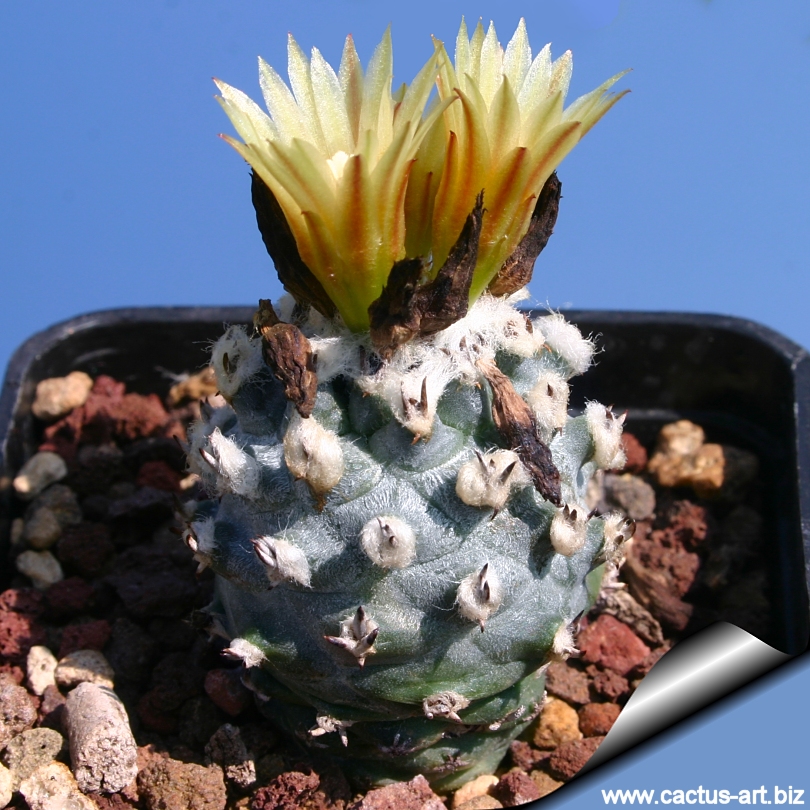
This is a very distinctive short spined variant of the famous T.
flaviflorus.
This variety has very short corky golden-brown spines that contrast well
with the body which is coated in a whitish bloom.
|
|
Description: Cylindrical grey-greenish and coated in a whitish
bloom 2.5 cm in diameter, 5 cm tall;
Tubercles: conical with a rhomboidal base, Slowly clumping.
Areoles: Small with white caduceus wool.
Spines: 4 spongy,
chubby
and very short, 2-4 mm long yellow-brownish.
Flowers:
Infundibuliform, light yellow-green up 1,5 cm in diameter.
Blooming season: The flowers appear at the plants apex in
succession from spring to summer.
Fruit: Longly ovoidal 10 mm long. With dried flowers remnants.
|
|
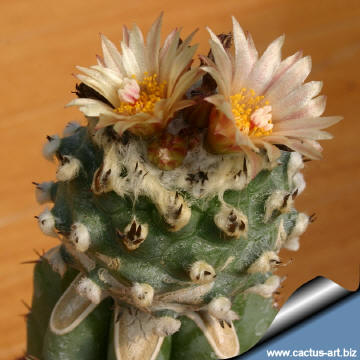 |
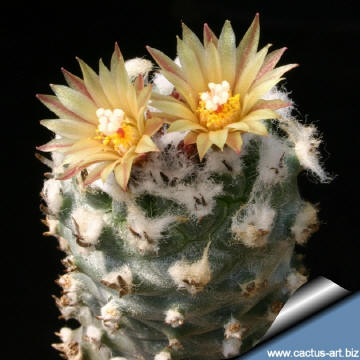 |
|
. |
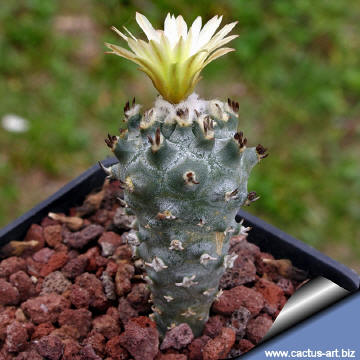 |
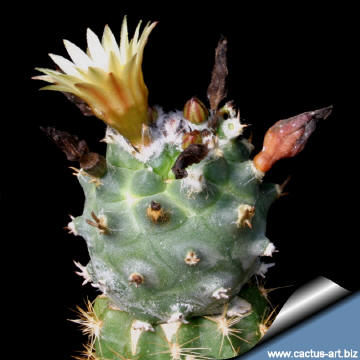 |
|
Cultivation: It’s a fairly
easy and robust species to cultivate, but very slow growing. It needs a
very well-drained soil, and requires strong sun to part sun to
keep the plant compact and low. Waterings should be rather infrequent to keep the plant compact,
and avoid its becoming excessively elongated and unnatural in
appearance.
Furthermore it has a tap root, and watering
it properly is often difficult, because it tends to crack open or rot if
over-watered. Keep dry in winter, or when night temperatures
remain below 10° C. It is hardy to -4°C for a short period.
Assure a
good ventilation.
Reproduction: Cutting or grafting or
by seeds (if available).
|
|
Advertising
|
|
|
|
Family:
Cactaceae (Cactus
Family)
Scientific Name:
Turbinicarpus flaviflorus
"brevispinus"
Origin:
Garden origin (Nursery
produced cultivar)
Conservation status: Listed in
CITES appendix I
Etymology: The plant name
“brevispina” comes from Latin for shorter spined. This plant has
very short corky golden spines
|
|
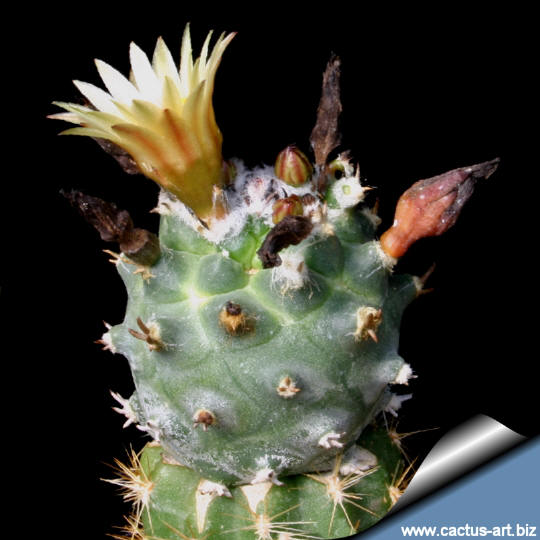
The flowers colour, from which it gets its name are an unusual
greenish-yellow and contrast well with the body.
|
|
|
|
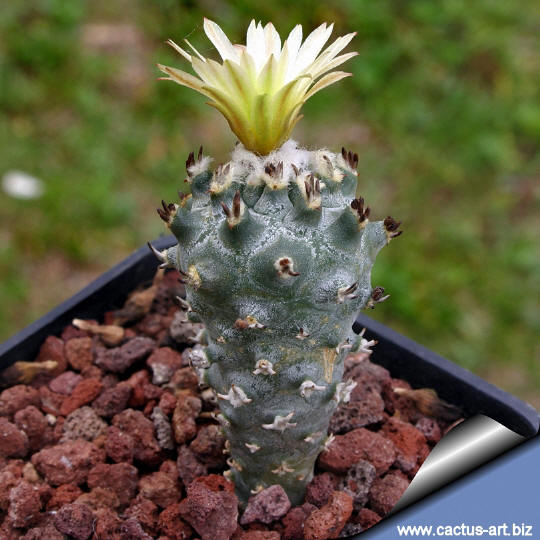
Photo of conspecific taxa,
varieties, forms and cultivars of plants belonging to the
Turbinicarpus schmiedicheanus aggregate:
(This taxon has lots of synonyms,
with several controversial varieties and
subspecies):


|
|